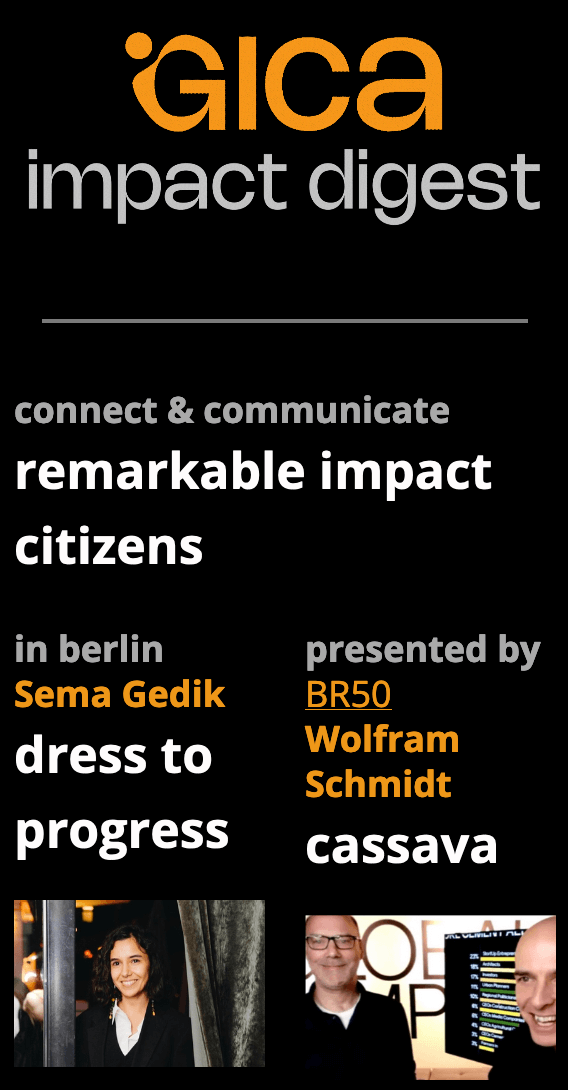GICA: Katrina, tell us what the idea behind Studio 183X is.
Katrina Ryback: Studio 183X is the first franchise concept in the sustainable fashion business. We are creating a global platform for independent designers and artists, cooperating with various entrepreneurs worldwide.
GICA: To illustrate the idea, Let’s say I have a space in New York, and I’d like great designers going toward sustainability. I get the space and staff, and you book all the designers for me. In other words, I have to put up the hangers, and you fill the hangers with good, innovative, sustainable designs?
Studio 183X is the first franchise concept in the sustainable fashion business. We are creating a global platform for independent designers and artists, cooperating with various entrepreneurs worldwide—the world’s first sustainable fashion franchise.
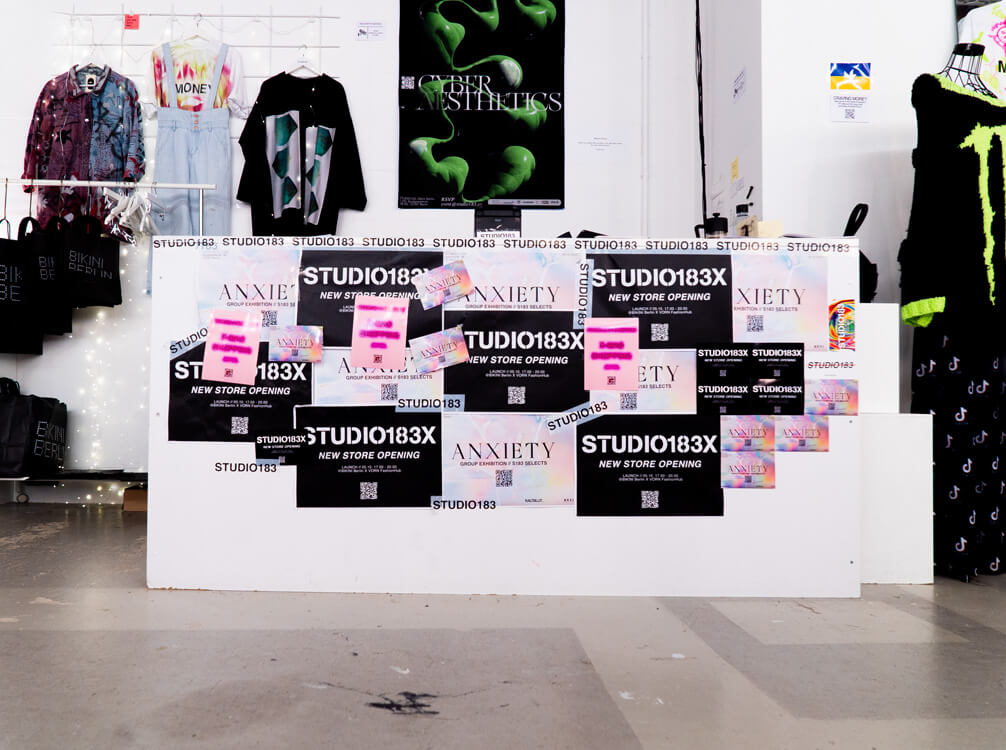
Katrina Ryback: Exactly.
GICA: Great. How many designers do you have on hand?
Katrina Ryback: We have 100 designers at the moment.
GICA: Wow, that’s a lot. All from Berlin?
Katrina Ryback: No, worldwide. They are all international.
GICA: This brings us to the subject of sustainability. Sustainable doesn’t mean that all fabrics are certified organic, but rather that they cover the entire range of E, S, and G, i.e., social sustainability. There would be no sweatshirts from sweatshops in Bangladesh, I guess.
Katrina Ryback: Yes, exactly. Traceability is a keyword. We know where things are being produced and by whom. We are in direct contact with the designers, who also oversee production, and we have an overview of how, what, and where the fashion is being produced.
We don’t work with sustainable fashion per se but with sustainable concepts in fashion. This means that small quantities are produced, there is no mass production, we work with upcycling a lot, and designers don’t have to stick to the typical seasons.

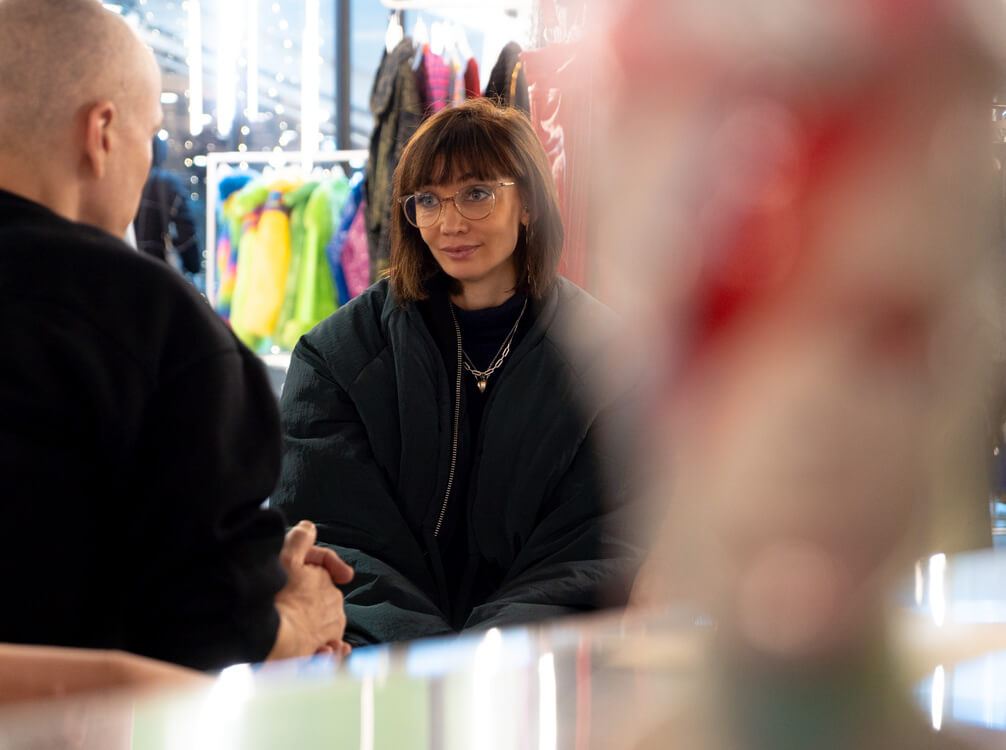
GICA: Is there such a thing as sustainable fashion?
Katrina Ryback: Sustainable fashion is such a buzzword, and the definition of sustainable fashion is precise. We don’t work with sustainable fashion per se but with sustainable concepts in fashion. This means that small quantities are produced, there is no mass production, we work with upcycling a lot, and designers don’t have to stick to the typical seasons.
They don’t have to produce something new every season but can take a more or less self-determined approach. And I would say that our concept is working towards democratizing fashion retail. The designers themselves determine the prices and production.
It’s about learning to consume differently to develop a different value for the clothes we wear and those we are attracted to.
GICA: Very cool. The democratization of fashion retail – that’s a huge vision. It’s so easy to say, but in the end, it’s a direct attack on fast fashion.
Katrina Ryback: Exactly. It’s about learning to consume differently to develop a different value for the clothes we wear and those we are attracted to. You start to reject fast fashion because you build a relationship with what you wear and who produced it.
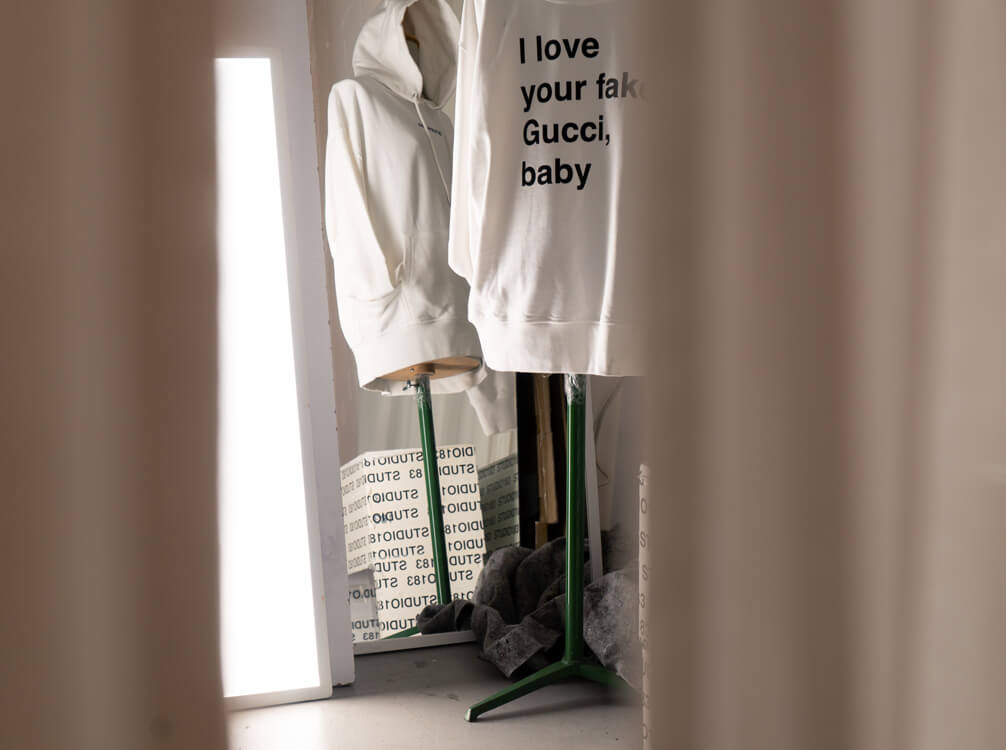
GICA: That’s an excellent vision, but does it stand a chance against the giants like Zara or H&M?
Katrina Ryback: That’s a good question. It’s comparable to going to the organic supermarket. Not everyone can afford it, but if you know how you consume, how you eat, and what you eat, you would instead go to the organic store. So, it’s, unfortunately, a socio-demographic thing that only specific people can afford or want to do. It’s about awareness. It has something to do with education.
GICA: The question is: Since we know that organic supermarkets can never become as big as Aldi and Lidl, should we stop investing in organic supermarkets? The answer is no.
Katrina Ryback: That’s right. All significant changes start small.
In Berlin, there is an openness and also a desire to experiment, to collaborate, to create something.
GICA: It’s probably the same for the fashion market. There is no organic fashion company yet, which brings me to the question: Will you become the Bio Company* of fashion?
*(Germany’s largest organic supermarket)
Katrina Ryback: Our vision is somewhat to become the Bio Company of fashion. It doesn’t necessarily have to be ego-driven like Studio 183, but we build global awareness with different partners.
GICA: Hence the franchise idea.
Katrina Ryback: Exactly.
GICA: How will it grow?
Katrina Ryback: The Studio 183X concept can be found in virtually all global cities by developing concepts in major international cities worldwide.
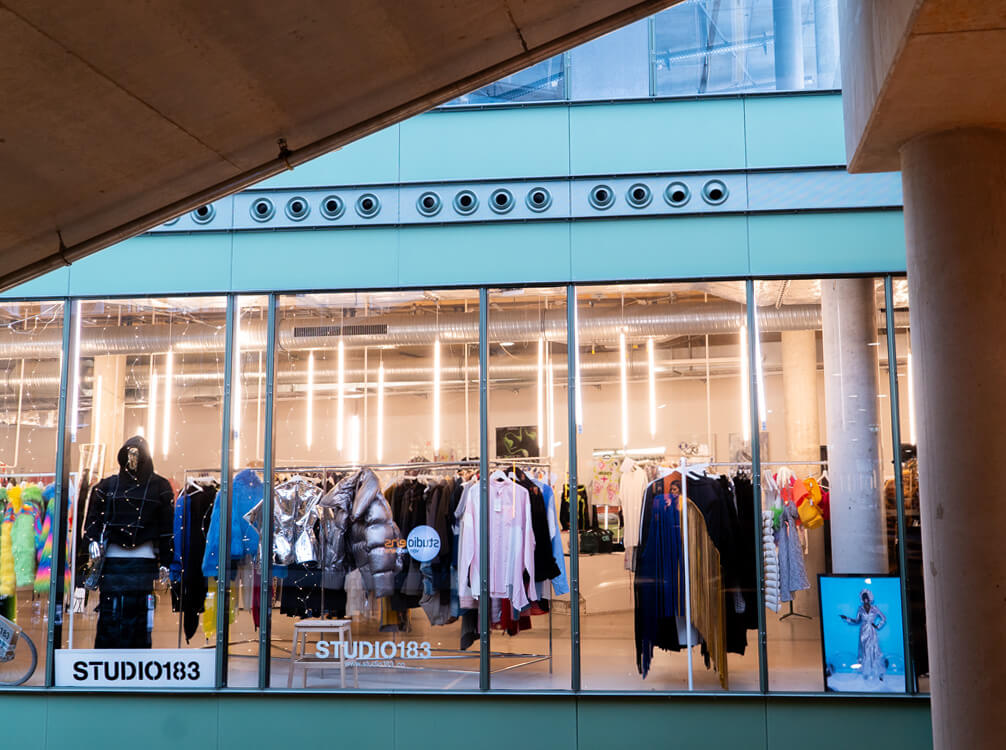
GICA: In other words, an open franchise concept where you don’t dictate everything but rather offer support. We have the same idea with GICA. We want to build something other than the world’s biggest club. We like to help people to develop their networks wherever they are. Decentralized, democratic. A kind of franchise 2.0
Katrina Ryback: Yes, I agree. You can adopt the concepts we have built up and implemented over the years with the shop-in-shop concept. Events are also significant for us because it’s not just about selling but about building a community and networks among the creatives so that they can create other things within the framework of how they meet here.
GICA: That makes sense because it’s usually like that: Either you’re an artist, and you can’t do the entrepreneurial part, or you’re an entrepreneur, not understanding the artist – then you end up with something like H&M. But the combination is the ideal thing. This you only get if someone shows you how to create that mix. Do you think Berlin is the right place to start the mentioned community? Wouldn’t it have been better to start in New York?
In Berlin, synergies can form that cross borders.
Katrina Ryback: No, Berlin was the only place to create something like this. In Berlin, synergies can form that cross borders. I could build up connections here on excellent levels, and it was only through connecting and collaborating that it all developed at all. And it was finding affordable spaces, which would have been impossible in New York if you didn’t have a lot of resources.
In Berlin, there is an openness and a desire to experiment, collaborate, and create something.
There’s just a spirit that makes you want to create something with others, even though you might not know exactly where it’s going.
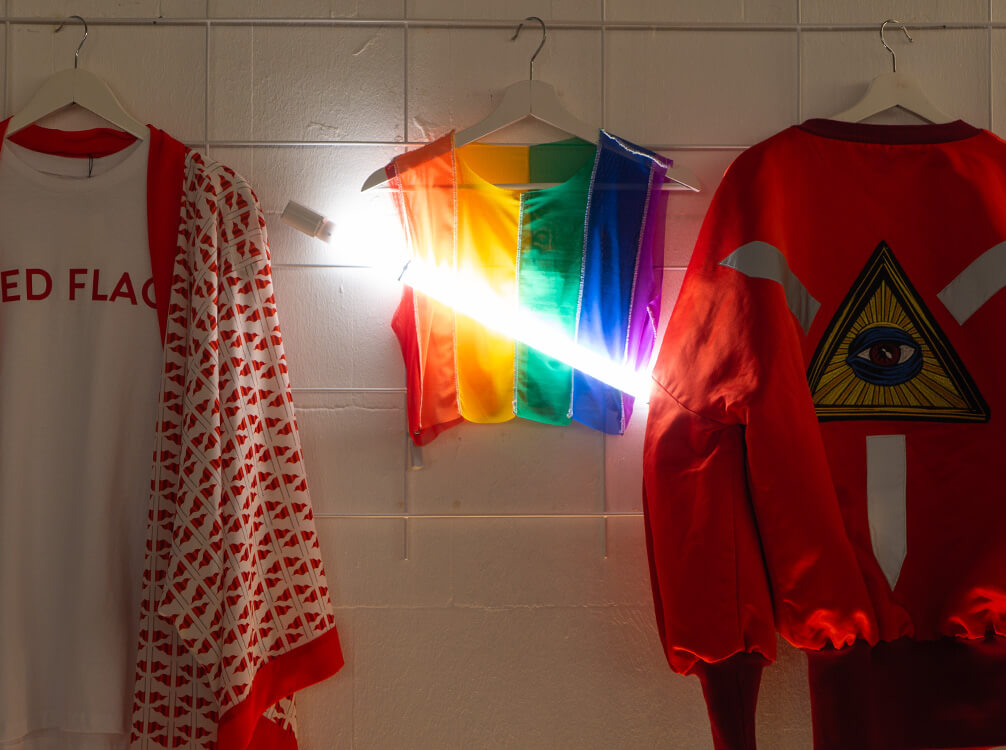
GICA: Are collaborations easier to build in Berlin than elsewhere?
Katrina Ryback: I would say yes.
GICA: Why?
Katrina Ryback: In Berlin, there is an openness and also a desire to experiment, to collaborate, to create something. There’s just a spirit that makes you want to build something with others, even though you might not know exactly where it’s going. In return, you have the freedom here that you don’t necessarily have in London or New York, where you must always be so money-driven to survive.
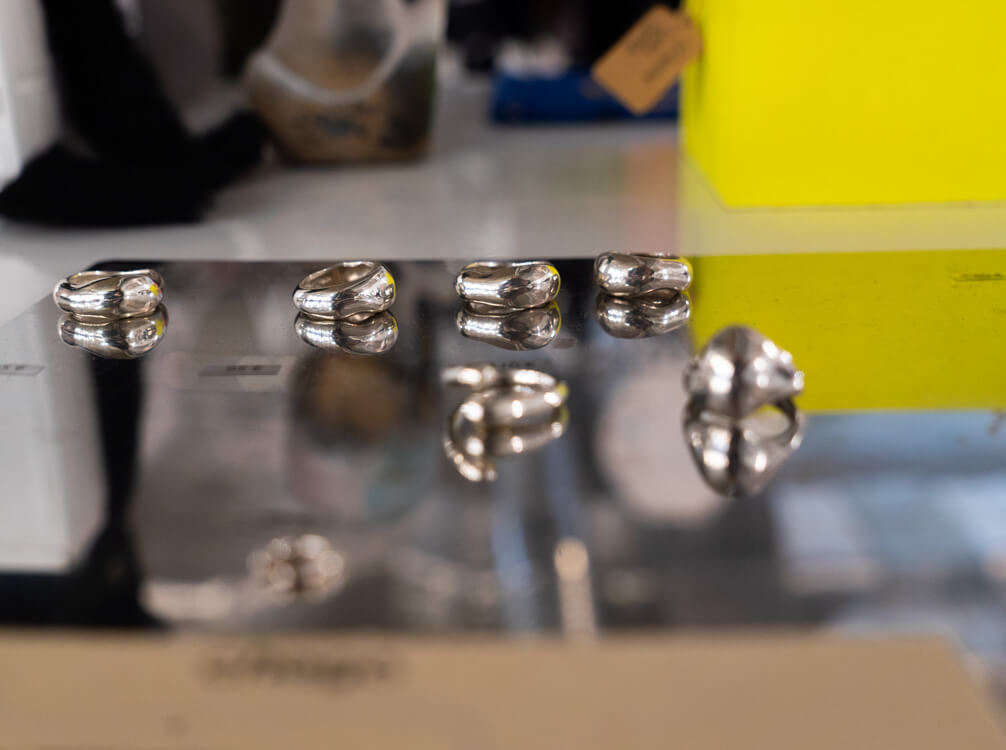
GICA: In London or New York, do you have to be a grown-up?
Katrina Ryback: Yes. In Berlin, you can still be Peter Pan.
GICA: That is an advantage for creatives. Due to the real estate sector crisis, there will soon be new, affordable spaces for Peter Pans in Berlin.
Katrina Ryback: Yes, and retail needs to change anyway. It’s time for change. We can’t carry on how we’ve been doing things until now. That’s why concepts like the one we’re doing are now particularly relevant and also more sustainable.
Are you interested in opening your Studio 183X?
Get in touch with Katrina via the GICA community or LinkedIn.



